
Discover the Charm of Dago in Bandung
Nestled in the hills of Bandung, Dago is a vibrant neighborhood that perfectly blends natural beauty, rich culture, and modern amenities, making it a must-visit destination for tourists. As you wander through Dago, you'll be greeted by lush greenery, cool mountain air, and stunning views of the city below. The area is renowned for its picturesque landscapes, which offer endless opportunities for outdoor activities such as hiking, cycling, and leisurely walks. Dago is also a hub for art and culture enthusiasts. Visit the many art galleries and cultural centers dotted around the neighborhood to get a taste of local creativity and tradition. The vibrant street art and murals add a splash of color and character to the area, reflecting the lively spirit of its residents. For food lovers, Dago is a paradise. The neighborhood boasts a wide array of dining options, from cozy cafes to upscale restaurants, serving both local and international cuisines. Don't miss the chance to try Sundanese dishes, which are a local specialty. Shopping enthusiasts will also find plenty to explore, with numerous boutiques and markets offering unique, handcrafted items and souvenirs. The neighborhood's nightlife is equally appealing, with trendy bars, live music venues, and night markets providing entertainment well into the evening. Whether you're looking to unwind with a cocktail or dance the night away, Dago has something for everyone. The combination of natural beauty, cultural richness, and modern comforts makes Dago a standout destination in Bandung.
Local tips in Dago
- Visit early in the morning to enjoy the cool mountain air and avoid crowds.
- Don't miss the local art galleries and cultural centers to get a glimpse of the neighborhood's creative side.
- Sample Sundanese cuisine at local eateries for an authentic taste of the region.
- Wear comfortable shoes as the neighborhood is best explored on foot.
- Check out the night markets for unique souvenirs and a vibrant evening atmosphere.
Discover the Charm of Dago in Bandung
Nestled in the hills of Bandung, Dago is a vibrant neighborhood that perfectly blends natural beauty, rich culture, and modern amenities, making it a must-visit destination for tourists. As you wander through Dago, you'll be greeted by lush greenery, cool mountain air, and stunning views of the city below. The area is renowned for its picturesque landscapes, which offer endless opportunities for outdoor activities such as hiking, cycling, and leisurely walks. Dago is also a hub for art and culture enthusiasts. Visit the many art galleries and cultural centers dotted around the neighborhood to get a taste of local creativity and tradition. The vibrant street art and murals add a splash of color and character to the area, reflecting the lively spirit of its residents. For food lovers, Dago is a paradise. The neighborhood boasts a wide array of dining options, from cozy cafes to upscale restaurants, serving both local and international cuisines. Don't miss the chance to try Sundanese dishes, which are a local specialty. Shopping enthusiasts will also find plenty to explore, with numerous boutiques and markets offering unique, handcrafted items and souvenirs. The neighborhood's nightlife is equally appealing, with trendy bars, live music venues, and night markets providing entertainment well into the evening. Whether you're looking to unwind with a cocktail or dance the night away, Dago has something for everyone. The combination of natural beauty, cultural richness, and modern comforts makes Dago a standout destination in Bandung.
Iconic landmarks you can’t miss
Taman Hutan Raya Ir. H. Djuanda
Discover the serene beauty of Taman Hutan Raya Ir. H. Djuanda, a botanical garden in Bandung with diverse flora and stunning views, perfect for nature lovers.
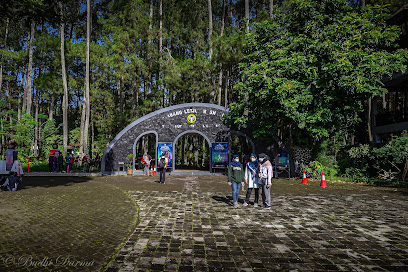
Dago Dreampark
Experience endless fun and breathtaking views at Dago Dreampark, a premier recreation center and theme park in Bandung, perfect for families and adventure seekers.
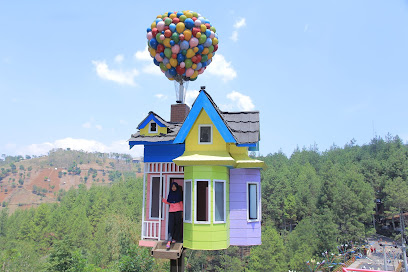
Cikapayang Dago Park
Discover tranquility and scenic beauty at Cikapayang Dago Park, a charming urban oasis in Bandung, perfect for relaxation and exploration.
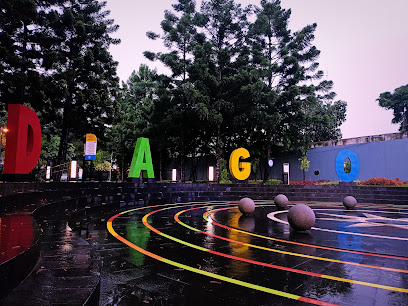
Gua Belanda
Discover the enchanting Gua Belanda, a historical landmark in West Java, surrounded by lush nature and rich cultural heritage.
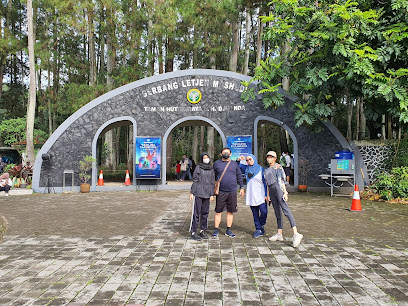
Curug Dago
Immerse yourself in the natural beauty of Curug Dago, Bandung's enchanting waterfall, perfect for relaxation and adventure alike.
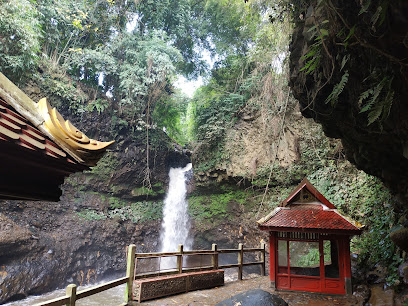
Tahura (Taman Hutan Raya) Djuanda
Explore the lush landscapes and rich biodiversity of Tahura Djuanda, a serene getaway in the heart of Bandung's natural beauty.
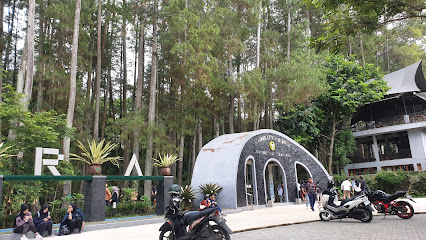
Kampung Wisata Augmentedreality Dago Pojok Tanggulan
Explore the vibrant fusion of culture and technology at Kampung Wisata Augmented Reality Dago Pojok Tanggulan in the scenic hills of Bandung, West Java.
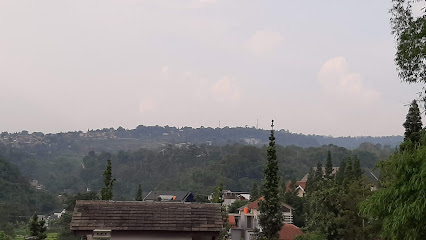
Dago Pakar
Discover the culinary gem of Dago Pakar in Bandung, where delectable dim sum meets stunning views in a charming atmosphere.
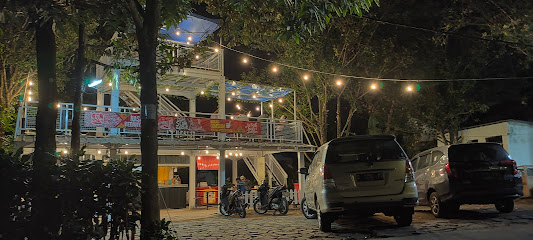
Dago Bawah
Discover the serene beauty of Dago Bawah, a tranquil garden escape in Bandung, offering lush landscapes and breathtaking views for a perfect day out.
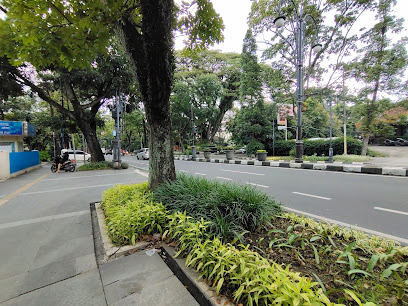
Rangkai
Discover the historical charm of Rangkai in Bandung, where rich heritage meets stunning architecture in a serene setting.
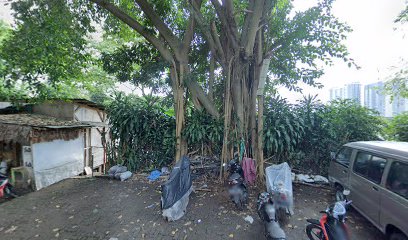
Unmissable attractions to see
Cikapayang Dago Park
Discover Cikapayang Dago Park, a lush urban retreat in Bandung, perfect for relaxation, stunning views, and a taste of local culture in a serene environment.
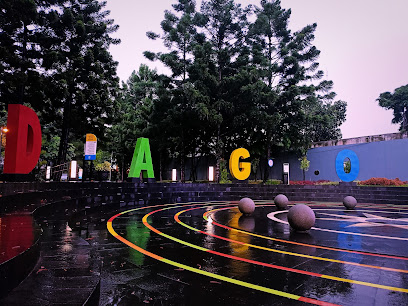
Gua Belanda
Explore Gua Belanda, a historical landmark in Taman Hutan Raya Juanda, where nature and history come together in breathtaking harmony.
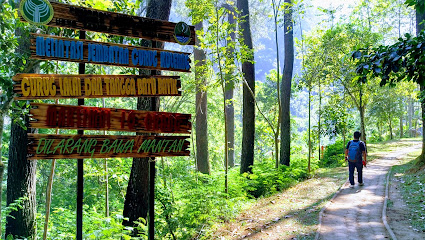
Tahura (Taman Hutan Raya) Djuanda
Explore the serene beauty of Tahura Djuanda, a lush forest park in Bandung, perfect for hiking, birdwatching, and immersing in nature's tranquility.
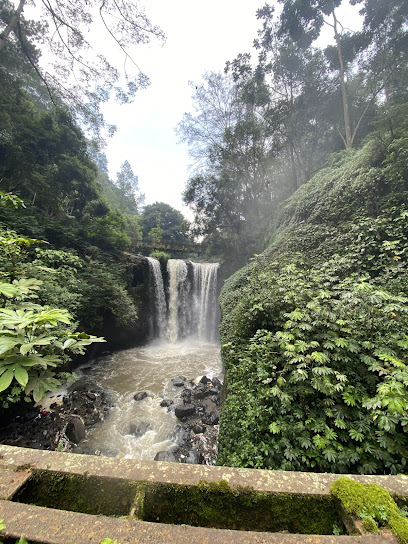
Kampung Wisata Augmentedreality Dago Pojok Tanggulan
Experience the fusion of culture and technology at Kampung Wisata Augmented Reality in Bandung, where local stories come to life.
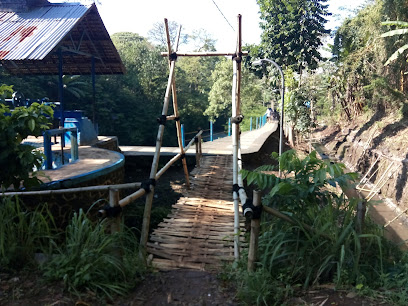
Dago Pakar
Experience the best dim sum and breathtaking views at Dago Pakar, a scenic culinary gem in Bandung, West Java.
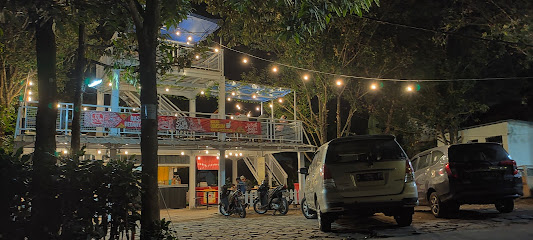
Dago Bawah
Discover the tranquil beauty of Dago Bawah, a stunning garden retreat in Bandung, offering lush landscapes and breathtaking views for nature lovers.
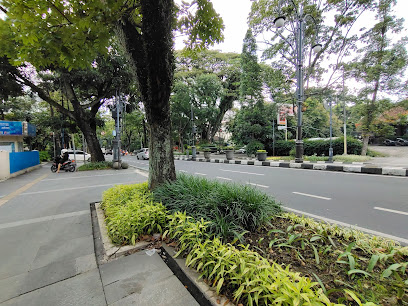
Essential places to dine
Congo Gallery & Cafe
Discover Congo Gallery & Cafe in Bandung - where exquisite cuisine meets captivating art in an inspiring atmosphere.
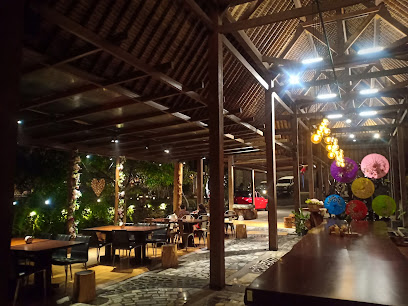
Tizi Cake Shop & Restaurant
Discover the rich flavors of Dutch cuisine at Tizi Cake Shop & Restaurant in Dago—an unforgettable culinary experience awaits you!
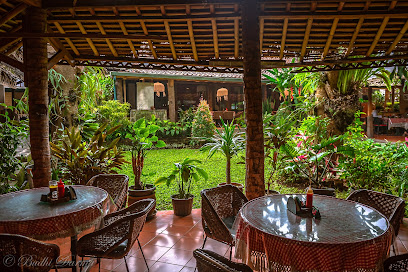
The Stone Cafe
Discover culinary excellence at The Stone Cafe in Bandung - where fine dining meets stunning views.
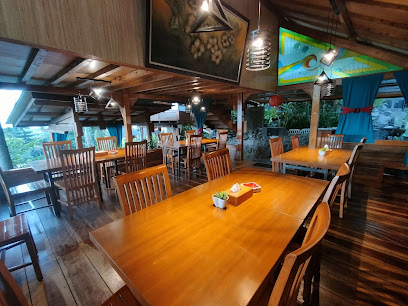
The Valley Bistro Café
Experience exquisite dining with breathtaking views at The Valley Bistro Café in Bandung - where every meal is a feast for your senses.
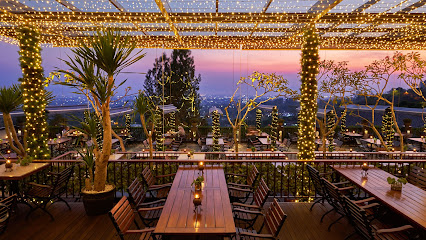
Thai Palace Restaurant
Experience authentic Thai cuisine in Bandung at Thai Palace Restaurant - where every meal is a journey through Thailand's rich culinary heritage.
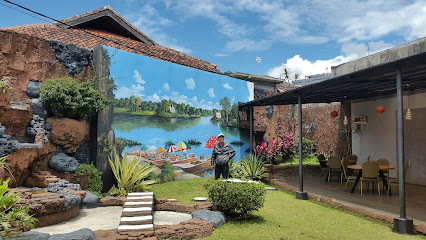
Dago Tea House
Discover tranquility at Dago Tea House in Bandung – where art meets authentic Indonesian flavors amidst stunning views.
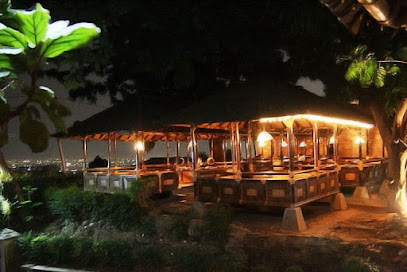
Brasa | Bamboorasa
Discover exquisite dining at Brasa | Bamboorasa in Bandung - where traditional flavors meet modern cuisine amidst stunning natural beauty.
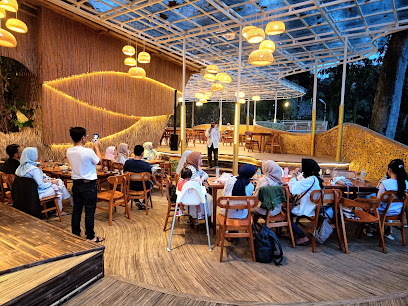
Coca Suki Restaurant
Experience the ultimate hot pot dining at Coca Suki Restaurant in Bandung—where flavor meets tradition in every delicious bite.
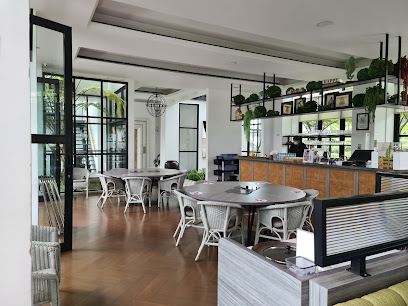
Feast Restaurant
Experience culinary excellence at Feast Restaurant in Sheraton Bandung - where local flavors meet international cuisine in an elegant setting.
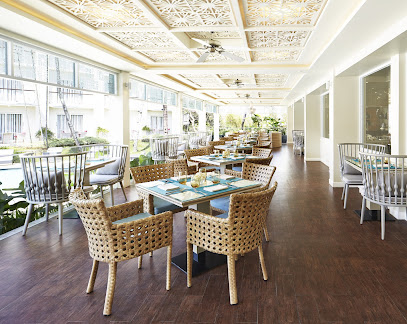
DAGO KEUKEN
Discover the flavors of Indonesia at Dago Keuken in Bandung – where delicious chicken dishes meet delightful breakfasts and tempting desserts.
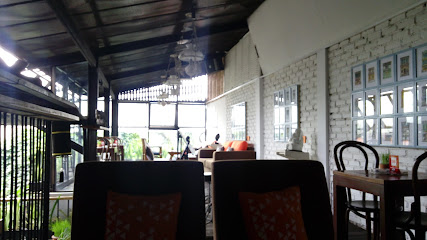
Markets, malls and hidden boutiques
Dago Busana Modern
Explore unique fashion at Dago Busana Modern, a boutique in Bandung blending contemporary style with local craftsmanship.

Oraqle
Explore Oraqle Shopping Mall in Bandung, a vibrant hub for shopping, dining, and entertainment, reflecting the culture and spirit of the city.
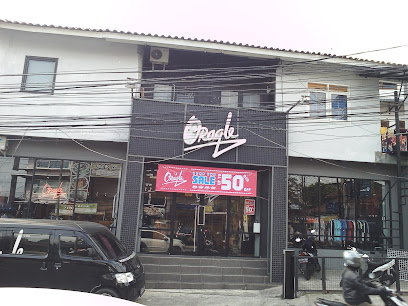
JAVA JONES APPAREL
Explore the vibrant fashion scene at Java Jones Apparel in Bandung, where unique clothing meets local artistry for an unforgettable shopping experience.
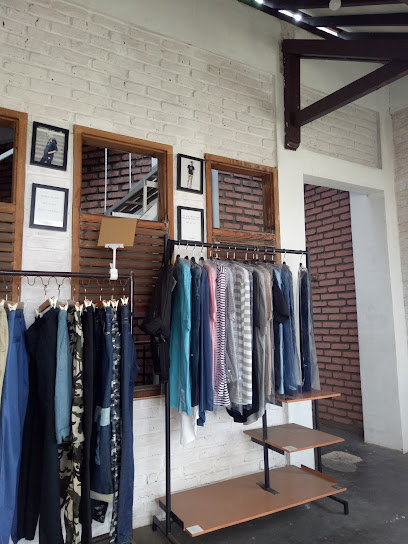
Dago
Experience the vibrant shopping and cultural blend at Dago in Bandung, where local charm meets modern retail.
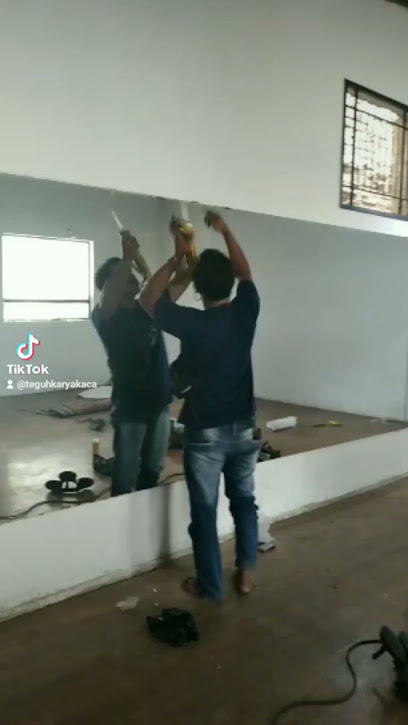
Estetika Merchandise
Explore your creativity at Estetika Merchandise in Bandung, where custom t-shirts meet personal expression in a vibrant atmosphere.
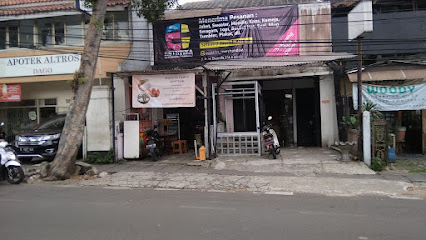
Rumah cardust
Explore Rumah Cardust, a shopping paradise in Bandung, offering a mix of local and international brands, dining, and family-friendly entertainment.
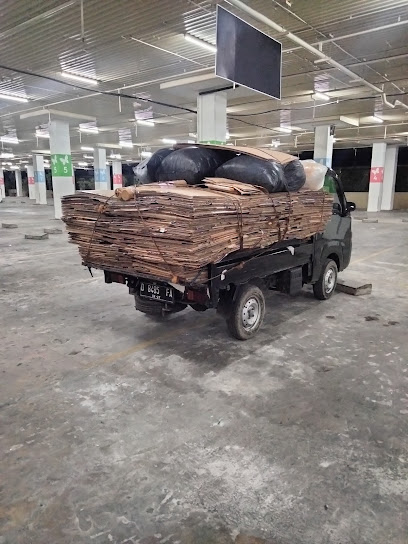
Koffka
Explore Koffka in Bandung for exquisite textiles, vibrant colors, and a slice of Indonesian culture in every piece.
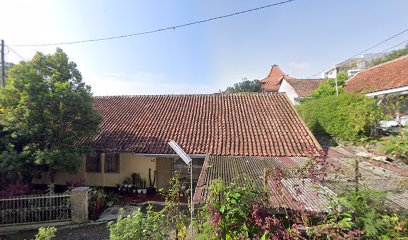
Naghivs
Explore Naghivs in Bandung for the finest cosmetics, baby products, and unique gift baskets that capture the essence of Indonesian beauty and creativity.
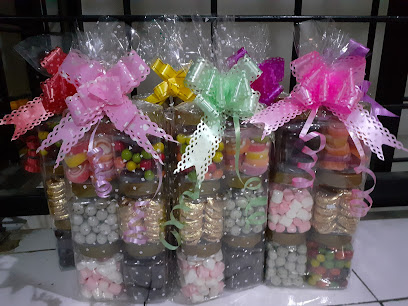
Before Anything Else
Explore the essence of men's fashion at Before Anything Else in Bandung, where style meets local creativity in a vibrant shopping experience.
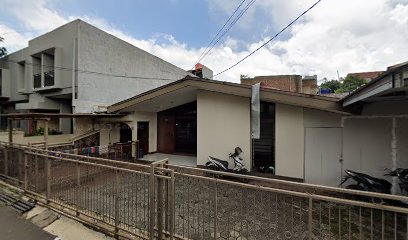
Dago barat 41
Explore the charm of Dago Barat 41, Bandung's gift shop for unique, locally crafted treasures that encapsulate Indonesian culture.

Essential bars & hidden hideouts
Bar at Dago
Experience the vibrant nightlife of Bandung at Bar Dago, where cocktails, music, and stunning views create unforgettable memories.
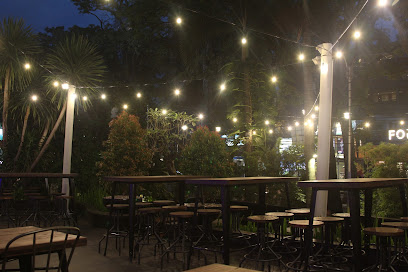
Scenery Bar & Lounge
Experience the tranquil ambiance and stunning views at Scenery Bar & Lounge in Bandung's Jayakarta Suite Hotel & Spa.

Capital East Happy Drink
Discover the lively Capital East Happy Drink Beer Garden in Bandung - a perfect blend of relaxation and vibrant social life.
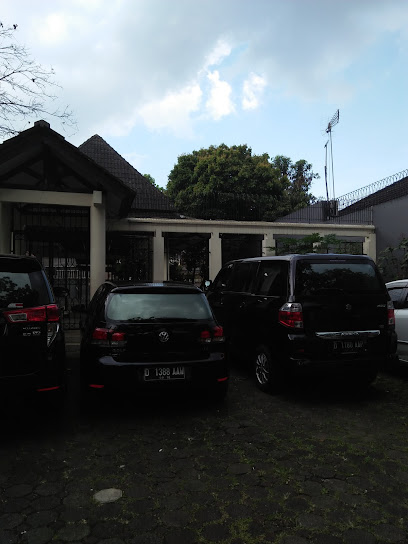
Samsara Lounge
Experience the serene ambiance of Samsara Lounge, a premier bar and café in Bandung offering exquisite drinks and delightful bites.

MANUSIA
Experience the vibrant nightlife at MANUSIA, Bandung's premier live music bar offering unforgettable performances and a lively atmosphere.
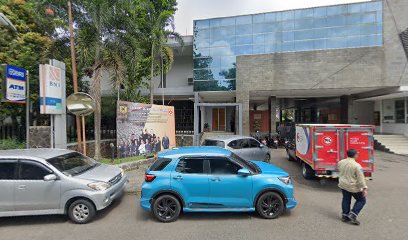
warung imil
Discover the charm of Warung Imil, a cozy bar in Dago, Bandung, offering a selection of local drinks and a welcoming atmosphere for all visitors.
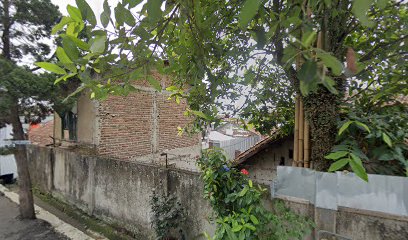
Es Coklat Tiada Dua
Discover the ultimate chocolate experience at Es Coklat Tiada Dua in Bandung, where every sip and bite is a sweet journey into indulgence.
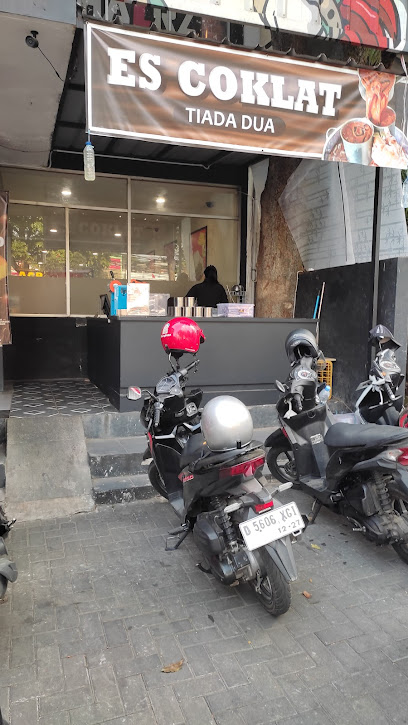
Pool Bar
Discover the relaxing ambiance of Pool Bar in Bandung, where refreshing drinks and beautiful views create the perfect escape from the city's hustle.

Kick & Bark
Discover the best grilled delights at Kick & Bark, Bandung's premier grill restaurant blending local flavors with a vibrant dining atmosphere.
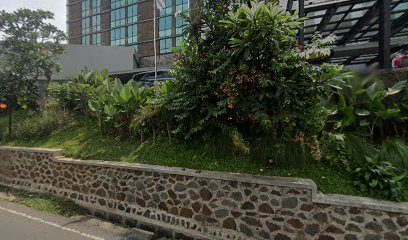
Just Drink Good Feel Good
Experience vibrant nightlife and exceptional drinks at Just Drink Good Feel Good in Bandung's lively Dago district.
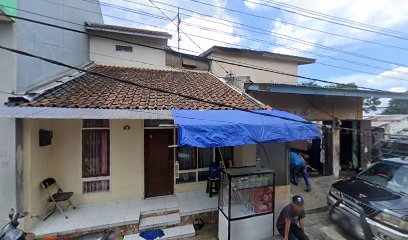
Local Phrases
-
- HelloHalo
[ha.ˈlo] - GoodbyeSelamat tinggal
[sə.ˈla.mat tɪŋ.ˈɡal] - YesYa
[ja] - NoTidak
[ˈti.dak] - Please/You're welcomeSilakan
[si.ˈla.kan] - Thank youTerima kasih
[tə.ˈri.ma ka.ˈsih] - Excuse me/SorryMaaf
[ma.af] - How are you?Apa kabar?
[a.pa ˈka.bar] - Fine. And you?Baik. Bagaimana denganmu?
[baik ba.ɡai.ˈma.na dɛn.ˈɡan.mu] - Do you speak English?Apakah kamu bisa berbahasa Inggris?
[a.pa.ka kamʊ ˈbi.sa bər.ba.ˈha.sa ˈɪŋ.ɡrɪs] - I don't understandSaya tidak mengerti
[sa.ja ˈti.dak məŋ.ˈɡɛr.ti]
- HelloHalo
-
- I'd like to see the menu, pleaseSaya ingin melihat menu, tolong
[sa.ja ˈɪn.ɡɪn mə.ˈli.hat ˈme.nu ˈto.loŋ] - I don't eat meatSaya tidak makan daging
[sa.ja ˈti.dak ma.ˈkan ˈda.jɪŋ] - Cheers!Selamat minum!
[sə.ˈla.mat mi.ˈnum] - I would like to pay, pleaseSaya ingin membayar, tolong
[sa.ja ˈɪn.ɡɪn məm.ˈba.jar ˈto.loŋ]
- I'd like to see the menu, pleaseSaya ingin melihat menu, tolong
-
- Help!Tolong!
[ˈto.loŋ] - Go away!Pergi!
[ˈpər.ɡi] - Call the Police!Panggil polisi!
[ˈpa.ŋɡil po.ˈli.si] - Call a doctor!Panggil dokter!
[ˈpa.ŋɡil ˈdɔk.tər] - I'm lostSaya tersesat
[sa.ja tər.sə.ˈsat] - I'm illSaya sakit
[sa.ja ˈsa.kɪt]
- Help!Tolong!
-
- I'd like to buy...Saya ingin membeli...
[sa.ja ˈɪn.ɡɪn məm.ˈbɛ.li] - I'm just lookingSaya hanya melihat-lihat
[sa.ja ˈhu.nja mə.li.ˈhat li.ˈhat] - How much is it?Berapa harganya?
[bɛr.ˈa.pa har.ˈga.ɲa] - That's too expensiveItu terlalu mahal
[ˈi.tu tər.ˈla.lu ma.ˈhal] - Can you lower the price?Bisa kurangi harganya?
[ˈbi.sa ku.ˈra.ŋi har.ˈga.ɲa]
- I'd like to buy...Saya ingin membeli...
-
- What time is it?Pukul berapa sekarang?
[ˈpu.kul bɛr.ˈa.pa sə.ˈka.raŋ] - It's one o'clockPukul satu
[ˈpu.kul ˈsa.tu] - Half past (10)Setengah (sepuluh)
[sə.ˈtɛŋ.ah (sə.ˈpu.lu)] - MorningPagi
[ˈpa.ɡi] - AfternoonSore
[ˈsɔ.rɛ] - EveningMalam
[ˈma.lam] - YesterdayKemarin
[kə.ˈma.rɪn] - TodayHari ini
[ˈha.ri ˈi.ni] - TomorrowBesok
[ˈbɛ.sɔk] - 1Satu
[ˈsa.tu] - 2Dua
[ˈdu.a] - 3Tiga
[ˈti.ɡa] - 4Empat
[əm.ˈpat] - 5Lima
[ˈli.ma] - 6Enam
[ˈə.nam] - 7Tujuh
[ˈtu.dʒu] - 8Delapan
[də.ˈla.pan] - 9Sembilan
[səm.ˈbi.lan] - 10Sepuluh
[sə.ˈpu.lu]
- What time is it?Pukul berapa sekarang?
-
- Where's a/the...?Dimana...
[di.ˈma.na] - What's the address?Berapa alamatnya?
[bɛr.ˈa.pa a.ˈla.mat.ɲa] - Can you show me (on the map)?Bisa tunjukkan pada saya (di peta)?
[ˈbi.sa tun.ˈdʒu.kan pa.ˈda sa.ja (di ˈpe.ta)] - When's the next (bus)?Kapan yang berikutnya (bis)?
[ˈka.pan jaŋ bɛ.ˈru.tɲa (bɪs)] - A ticket (to ....)Satu tiket (ke ....)
[ˈsa.tu ti.ˈkɛt (kə ....)]
- Where's a/the...?Dimana...
History of Dago
-
Dago's history began to take shape during the Dutch colonial period in the 19th century. The area was developed as an elite residential neighborhood for the Dutch and wealthy Indonesians, who were drawn to its cooler climate and scenic views. The introduction of the Dago road in the 1880s connected the area with the city of Bandung, facilitating further development and establishing Dago as a fashionable retreat.
-
Dago became known as a cultural hub in the early 20th century, hosting numerous artists, writers, and intellectuals. The establishment of the Dago Tea House in 1920 marked the area as a gathering place for the creative elite. This cultural vibrancy contributed to Bandung's reputation as a center of arts and culture in Indonesia, which would later influence the broader cultural movements across the archipelago.
-
Dago's significance was further amplified during the Bandung Conference in 1955, where leaders from 29 African and Asian nations gathered to discuss colonialism and economic cooperation. Although not held directly in Dago, the conference led to increased international attention to Bandung, solidifying the city's role in the global political landscape and enhancing the status of areas like Dago as important venues for dialogue and diplomacy.
-
Following Indonesia's independence in 1945, Dago saw rapid urbanization and development. The area evolved from a colonial retreat into a bustling residential and commercial district. New infrastructure, including schools and shopping centers, was established, accommodating the growing population and transforming Dago into a modern urban neighborhood while retaining its historical charm.
-
Today, Dago is a vibrant neighborhood that reflects the eclectic mix of Bandung's history and contemporary culture. Known for its cafes, art galleries, and the iconic Dago Pakar, a popular tourist destination with natural beauty and historical significance, Dago continues to attract both locals and visitors. The area symbolizes Bandung's dynamic evolution, where rich heritage coexists with modern urban life.
Dago Essentials
-
Dago is easily accessible from other neighborhoods in Bandung. It is approximately 5 kilometers from the city center. You can take a taxi or ride-hailing services like Gojek or Grab for a convenient and direct trip. Public transportation options include angkots (minivans) that operate along major routes, with designated stops in Dago. If you are coming from Bandung's train station, the journey by taxi or ride-hailing service will take about 20 to 30 minutes, depending on traffic.
-
Dago is a hilly area, making walking a delightful way to explore its attractions, especially the scenic parks and cafes. For longer distances, local buses and angkots are available, and taxis can be hailed easily. Alternatively, you can rent a bicycle to navigate the area at your own pace. Note that traffic can become congested, particularly on weekends.
-
Dago is generally safe for tourists, but it's wise to stay vigilant. Petty crimes like pickpocketing can occur, especially in crowded areas. Specific areas to be cautious in include parts of Jl. Dago, especially at night. Avoid walking alone in poorly lit streets after dark, and keep your belongings secure. Always be aware of your surroundings.
-
In case of an emergency, dial 112 for police, fire, or medical assistance. The nearest hospital is RSUP Dr. Hasan Sadikin, which is equipped for emergencies. It is advisable to have travel insurance that covers medical emergencies. Pharmacies are available within Dago for minor health issues, offering over-the-counter medications.
-
Fashion: Do dress modestly, especially when visiting religious sites. Avoid wearing revealing clothing. Religion: Do respect local customs and traditions, including dress codes in temples and mosques. Public Transport: Do be polite and offer your seat to the elderly. Don't eat or drink on public transport. Greetings: Do greet locals with a friendly smile and a nod. Eating & Drinking: Do try local street food; it's part of the experience. Don't refuse food offers, as it is often seen as impolite.
-
To experience Dago like a local, explore the weekend markets for fresh produce and traditional snacks. Engage with local vendors, as they are often eager to share stories about their goods. Visit the Dago Dream Park for a blend of nature and entertainment, and consider hiking to the nearby Tangkuban Perahu volcano for stunning views. Don’t miss trying local specialties such as batagor and siomay at street stalls.
Nearby Cities to Dago
-
Things To Do in Jakarta
-
Things To Do in Semarang
-
Things To Do in Yogyakarta
-
Things To Do in Poon Saan
-
Things To Do in Flying Fish Cove
-
Things To Do in Drumsite
-
Things To Do in Settlement
-
Things To Do in Greta Beach
-
Things To Do in Surabaya
-
Things To Do in Bali
-
Things To Do in Kuching
-
Things To Do in Sentosa
-
Things To Do in East Coast Park
-
Things To Do in Marina Bay
-
Things To Do in Chinatown








